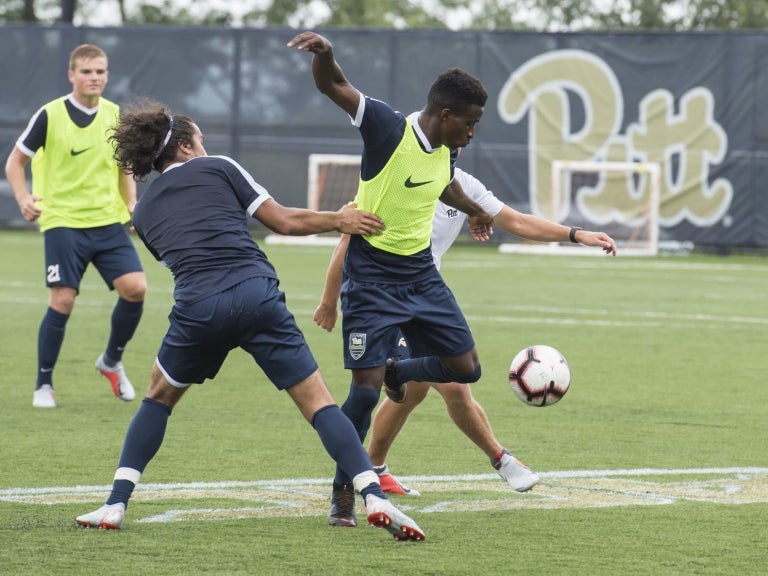
Whenever the Panthers score a goal on the soccer pitch, Sports Science Master’s student Kevin Madigan is right there to break down the mechanics of it all. His internship with the Pitt women’s soccer team helps bring to life the lessons learned in the classroom.
“You can only learn so much from a textbook. Having the ability to apply and see different principles be put into action is a type of learning that just can’t be replicated. Being able to see what does and doesn’t work, understand the day-to-day operations of the team and train the athletes are things that just can’t be replicated in the classroom,” says Madigan.
His primary responsibilities revolve around data collection and analysis–implementing wearable monitoring technology, like Catapult GPS units, to gather live feedback and information from the athletes during training and games. He also synthesizes information acquired through daily athlete surveys and works closely with the athletic trainers to customize and optimize training plans.
“What excites me the most is being able to perform the role of a sports scientist in an applied setting,” he says. “The coaching staff is really interested in all the data and making informed training decisions, which makes me feel like I provide a huge value to the training and success of the team and the individual athletes.”
The high-level scientific monitoring and analysis that he is able to provide the team also helps athletes improve performance and avoid injuries, especially by focusing on load management.
“It’s important to utilize all the data we collect so that the athletes can spend as much time on the field as possible and minimize the time spent in rehab or return-to-play protocols,” he explains.
When the team travels, so does Madigan–a unique and integral part of the internship experience that he describes as a “vastly different” setting from his work at home games.
But his learning isn’t limited to soccer: Thanks to the collaborative nature of the program, he and his classmates are excited to share their experiences with each other. “We often collaborate and troubleshoot any issues that arise and really learn from each other.”
Another big plus for Madigan is the professors’ flexibility with the students’ schedules, always willing to accommodate how students manage their classes alongside their internships.
After he finishes the one-year master’s program, Madigan looks forward to continuing his work as a sports scientist with a soccer or football team and eventually pursuing a doctoral degree in the field.
